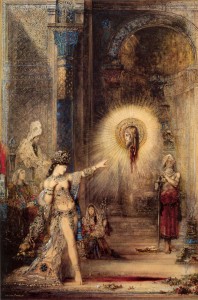Alice’s journey in Lewis Carroll’s Alice’s Adventures in Wonderland can be interpreted as a metaphor for her transition from child to adult. This would then suggest that Wonderland becomes a place for Alice to go through puberty, and the sister’s narrative at the end of the novel suggests that she has become an adult.
Alice’s realization that Wonderland is “nonsense” suggests that she has grown out of its wonders: ‘”No, No!” said the Queen. “Sentence first – verdict afterwards.” “Stuff and nonsense!” said Alice loudly. “The idea of having the sentence first!” (102). In comparison to many earlier events in the novel, when Alice for the most part seemed perplexed or fascinated by Wonderland’s creatures and events, Alice here takes a firm stance on her beliefs of what is right and wrong. This suggests that she no longer is susceptible to possibly accept the “nonsense” of Wonderland, and goes by real life’s “rules” that she sentence should follow the verdict.
Alice also feels superior to the cards at the end of the novel: ‘“Who cares for you?” said Alice (she had grown to her full size by this time). “You’re nothing but a pack of cards!”’ (102). Her realization that they are “nothing but…cards” further suggests that she has lost Wonderland’s sense of fantasy as reality, and is “superior” to childhood’s ideas. Additionally, the note that she has grown to her full size after multiple changes to her body in the novel, and her waking up right after growing to her right size (102), further suggests that Wonderland is a place for childhood, which she no longer belongs to. The multiple changes to her body in the novel can symbolize her transition through puberty, as she does not understand all the changes that she experiences, and the end of those changes implies that she has now grown to become an adult.
The sister’s narrative about how Alice will one day tell her children of Wonderland further implies that Wonderland is only accessible to children: “…she pictured to herself how this same little sisters of hers would…be herself a grown woman… and…gather about her other little children, and make their eyes bright and eager with many a strange tale, perhaps even with the dream of Wonderland long ago” (104). The sister’s idea of how Alice will one day gather her children is reminiscent of how Alice already told her sister her dream, which implies that she already is “a grown woman.” Alice’s leaving Wonderland, telling her sister her tale, and then running off thinking “what a wonderful dream it had been,” seems then to symbolize her leaving behind her childhood.
